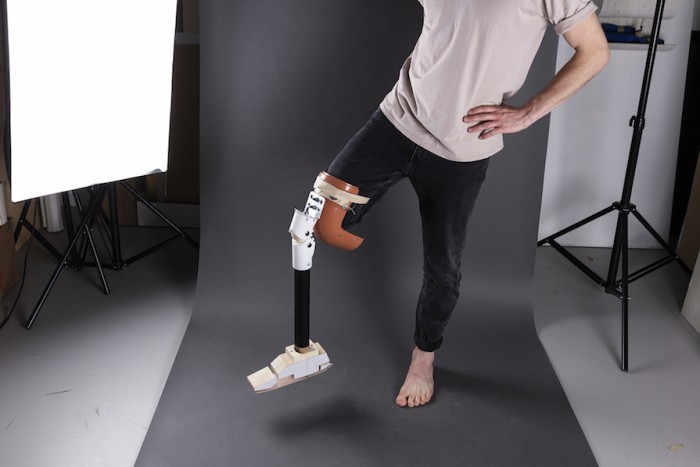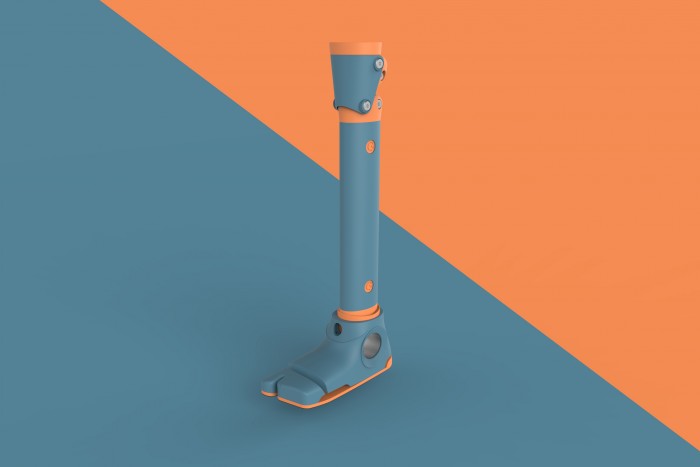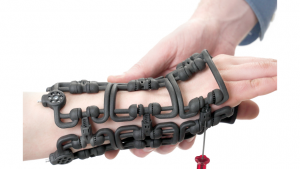The cost of prostheses has always been a problem for amputees in less developed countries, where it is not out of the ordinary for people to fashion artificial limbs for themselves from whatever material on which they can lay their hands.
This is obviously not beneficial to their health, and limits both mobility and functionality.
A new low-cost prosthesis, completely made out of recycled plastic, is about to change the lives of these amputees. It is called Circleg, and started out as a bachelor degree project by Fabian Engel and Simon Oschwald, industrial design students at the Zurich University of the Arts, has now developed into a fully fledged start-up.
Prosthesis manufactured for individual users
Designed to fulfil the needs of amputees in less developed countries, Circleg is a prosthetic leg that can be used by above- and below-the-knee amputees. What differentiates it from other prosthetic options is how all of its parts are manufactured to be adjusted to the individual user.
This is done by injection molding and extrusion, which will allow the user to differentiate between the parts needed.
Engel and Oswald's use of recycled plastic waste was an important aspect of the design. The two industrial design students were driven by the idea of using plastic waste as a resource in a way to create useful products.
“We aim at using plastic waste as a resource for prosthetics in order to simultaneously satisfy a social demand, and to tackle an urgent environmental issue,” said Engel and Oschwald.
A focus on Kenya
One of the countries they focused on is Kenya, and the pair travelled there in March of 2018, on what they called a 'research trip'. This gave them insight into both the recycling industry and also what amputees needed in their everyday lives.
This approach allowed the designers to integrate the need and requirements of these patients into a design process. By means of this, they developed a prosthetic system that was tailored to the Kenyan context and its rural settings.
They admit that when it came to the mechanics and functions of the leg prosthesis, things were challenging.
High function on a low budget
“The challenge was to design a modular prosthetic system that would provide the highest functionality with the lowest financial means.”
Engel and Oswald also revealed that they built many different prototypes until they got the one that best fitted the patients' needs. The completed module consists of two adapters, a knee joint, a pilone and a foot with an ankle joint.
Each adapter is seen as an individual adjuster and the ankle joints allow for different sitting and squatting positions – and squat, say the inventors, is what many people do when they need to use the toilet.
The polycentric knee joint allows the leg to swing forward while the person is walking, because of its being equipped with a protection cap and mechanisms.
Durability and flexibility most important
The plastic waste is used together with reinforcing glass fibres, from which a composite material was made that would meet the high-performance needs of a leg prosthesis.
With the use of these materials, Circleg is also able to repair or replace individual parts, without having to replace the entire prosthesis. This helps to cut costs.
The weight of the Circleg was also important to the designers as they did not want something heavy that would cause discomfort for the user.
Circleg has received a number of awards and accolades. In 2018, they received an Award for Excellent Business Pitch at the UZH Innovators Camp, and they were one of three winners at the Falling Walls Lab, Zurich.
According to Engel and Oswald they are continuing to further develop the prototype and system and that refining and testing would be their next step in the process.
“We are excited to push this project to implementation, and wish to make a difference to people's lives by using design.”
Read more:
The Parkinson Smart Cane is a portable device to assist Parkinson’s disease patients









